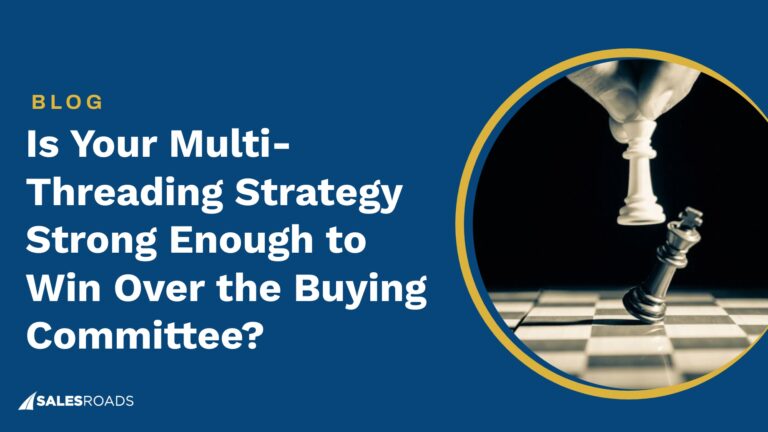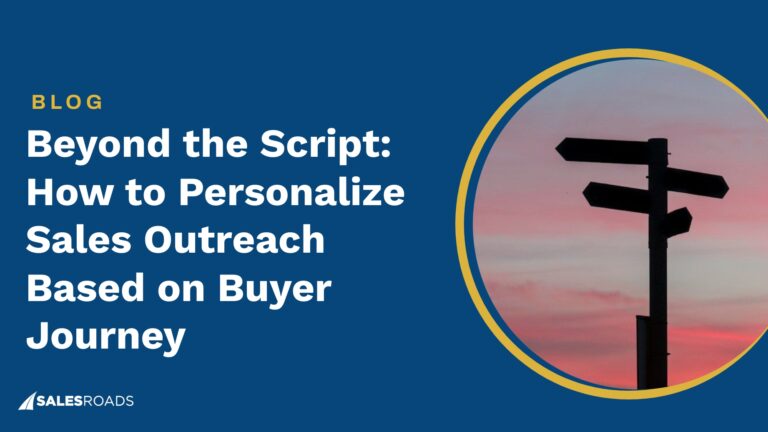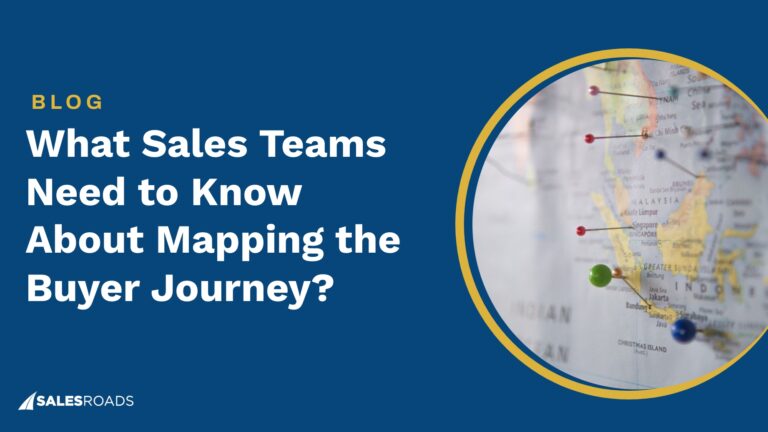When you’re selling into large organizations, figuring out who the actual enterprise decision-makers are—and how to reach them—isn’t always straightforward.
Enterprise buying processes are complex.
You’re often dealing with layers of stakeholders, influencers, and gatekeepers. And if you spend too long with someone who can’t actually say “yes,” you risk losing momentum—or the deal altogether.
Who Is the Decision Maker in Enterprise Sales?
The decision-maker in enterprise sales is typically someone with the authority to approve significant business investments, such as large-scale software solutions or strategic partnerships.
These individuals are responsible for steering the company’s direction and making purchasing decisions that align with the organization’s long-term goals.
The decision-making process can be complex, often involving multiple stakeholders across different departments. Some common titles and positions to look out for are Chief Executive Officer (CEO), Chief Financial Officer (CFO), Chief Information Officer (CIO), Vice President of Sales or Marketing, Director of Procurement or Purchasing Manager, Head of Operations or Chief Operating Officer (COO), or Senior Product Managers or Engineering Managers.
Identifying these roles within your target organization and understanding their motivations is a critical step in crafting your sales approach.
How to Find Decision Makers in an Enterprise Company?
Finding the enterprise decision-makers can be challenging. It often requires a mix of research, networking, and leveraging available tools to ensure you’re connecting with the person who has the authority to make decisions.
Here are several effective strategies to help you identify the decision-makers in enterprise sales.
Start with Company Websites and Press Releases
A great starting point for identifying decision-makers in enterprise sales is the company’s website.
Most businesses provide detailed information about their leadership team and key personnel on their “About Us” or “Leadership” pages. This can give you an immediate look at the people at the top of the organization who may hold decision-making power.
Press releases are also valuable resources. Companies often announce leadership changes, new hires, or important projects that can point you toward relevant decision-makers.
By keeping an eye on the latest company news, you can spot key players in the organization who might be responsible for purchasing decisions.
Leverage LinkedIn’s Advanced Search
LinkedIn’s vast network of 65 million decision-makers and over 10 million corporate executives positions it as a key platform for connecting with decision-makers in enterprise sales.
Using LinkedIn’s Advanced Search function, you can filter results by company, title, industry, and location to pinpoint individuals who are likely decision-makers.
Look for people with titles such as CEO, CFO, CIO, or VP of Sales, as they typically hold significant decision-making power within their respective departments.
LinkedIn also allows you to see mutual connections, which can be useful for introductions or warm outreach. By following key decision-makers, you can stay updated on their career moves and engage with them when the time is right.
Use CRM Data and Past Interactions
Your CRM system can be an invaluable resource for identifying enterprise decision-makers. If you have interacted with a company in the past, check your CRM for past communications and notes that might indicate who holds decision-making authority.
CRM data can also help you analyze previous deals, giving you insights into the decision-makers involved in past sales. This can provide you with a roadmap for reaching out to similar stakeholders in new sales cycles.
Ask Directly During Early Conversations
Another effective strategy is to ask directly during early conversations with prospects. If you’re engaging with a lead, don’t hesitate to politely ask, “Who is responsible for making the final decision regarding [your service]?”
This approach can help you cut through the noise and connect with the key players early in the process.
Being upfront about your goal to engage the right person demonstrates professionalism and a willingness to respect the client’s time, setting the stage for more productive conversations.
Tap Into Industry Networks and Referrals
Industry networks and professional groups are valuable resources for identifying decision-makers in enterprise sales.
Attend industry conferences, webinars, and events where you can meet and network with influential professionals. These events are often attended by senior leaders who may be key decision-makers in their respective companies.
Don’t hesitate to ask for referrals from existing clients, partners, or colleagues who might know decision-makers within the industry. A referral from a trusted source can open doors and make your outreach efforts more effective.
Monitor Job Changes and Promotions
Job changes and promotions often signal shifts in decision-making power within an organization. By tracking job movements on LinkedIn and company websites, you can identify individuals who may have recently taken on new roles with increased responsibilities.
This can help you find new decision-makers who may now be responsible for making key enterprise sales decisions.
Pay attention to when people move into leadership roles such as CTO, CIO, or Vice President of Operations, as these are often the individuals who control purchasing decisions for larger investments.
Look for Buying Committees in Larger Enterprises
In larger enterprises, decisions are often made by a buying committee rather than a single decision-maker. The average B2B buying committee has ballooned to over 10 stakeholders, and that spells trouble since the more stakeholders involved in a sales decision, the harder it is to move forward.
In such cases, it’s important to identify the key players within the committee who influence the purchasing decision.
By understanding the composition of the committee, you can tailor your pitch to meet the specific needs and concerns of each member, increasing your chances of securing buy-in from the entire group.
Signs You’re Not Talking to the Right Enterprise Decision-Makers
In enterprise sales, it’s essential to ensure you’re engaging with the right decision-maker, so you better watch out for red flags.
One of the biggest signs is when the person frequently says, “I’ll need to check with my team.” While collaboration is important, this phrase often signals that the person you’re speaking with doesn’t have the final say.
Similarly, if they’re not allowed to discuss budget details or they avoid commitment on timelines, it’s a sign that they might not have the purchasing authority.
Another red flag is that they focus only on features rather than the business impact of your solution; they may not fully understand the larger goals and objectives at play in a purchase decision.
Recognizing these red flags early on can help you refocus your efforts on finding the right person who can truly move the deal forward.
How to Approach and Engage Enterprise Decision-Makers Effectively
Engaging with the right enterprise decision-makers can be the key to closing a successful deal. However, getting their attention and securing a meaningful conversation requires strategy.
David Kreiger welcomed Bob Spina, former enterprise sales leader at Gong and current sales advisor, for a deep dive into strategies that work when selling to large organizations. Bob shares his “groundswell outbound” approach, which helps reps thoughtfully map out stakeholders, multitread relationships at all levels, and build buy-in across the enterprise.
Give it a listen here:
Here are some effective approaches to ensure your interactions are impactful and valuable:
Research Before Reaching Out
Before contacting enterprise decision-makers, take the time to understand their company, industry, and role. This includes reviewing their website, social media profiles, and news articles to gain insights into their current priorities.
Doing your homework ensures that your conversation is relevant and tailored to their specific needs.
Lead With Value, Not a Sales Pitch
Focus on the benefits your solution can bring rather than leading with a direct sales pitch.
Enterprise decision-makers are more likely to engage when you clearly outline how your service solves a problem they’re facing. Frame your offering in terms of ROI and long-term value rather than focusing on features alone.
Tailor Your Message to Their KPIs
Enterprise decision-makers are driven by specific KPIs that align with their goals and the organization’s objectives. Whether it’s improving efficiency, increasing revenue, or reducing risk, tailor your message to address how your solution will help them achieve their key metrics.
This personalized approach builds credibility and increases the chance of meaningful engagement.
David Kreiger welcomed David Rubinstein, the SVP of Sales at Spark, to talk about the metrics that matter for enterprise sales. Give it a listen to understand the KPIs that matter for enterprise decision-makers so you can speak their language:
Build Relationships Over Time
Engaging with decision-makers in enterprise sales often requires nurturing long-term relationships. Enterprise deals are taking longer to close, often exceeding six months. Keeping them on track is tough.
Instead of pushing for an immediate sale, invest in developing trust over time. Regular follow-ups, sharing relevant industry insights, and offering support will position you as a valuable partner rather than just a vendor.
Understand the Decision-Making Process
Each enterprise has its own decision-making process, often involving multiple stakeholders. Take the time to ask about the process and understand who else is involved.
This ensures you’re engaging with all the relevant decision-makers and avoids delays caused by missing or overlooked influencers.
Bottom Line
Winning in enterprise sales isn’t just about having the best product—it’s about earning the attention and trust of the right people. The enterprise decision-maker holds the keys to the deal, and your ability to identify, engage, and speak to what matters most to them will set you apart.
Don’t aim for more conversations; aim for the right ones.










